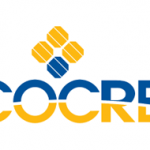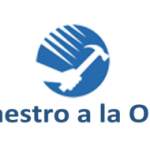Or how to deal with a kid like me.
Growing up, I was a teacher’s worst nightmare. I was really smart. I got high standardized test scores. I read books. I went to a top public high school, so I had all of the advantages. But I “never realized my potential” in school.
I got bad grades. I disrupted class. I challenged teachers’ authority. I slept through class. See preferred technique above. I got the right answers but refused to show my work. I got my first detention in 1st grade music class for tripping a friend, but skipped it to play in the intramural soccer championships. In second grade, I refused to learn cursive because “we’ll never need to use it.” In fourth grade, I refused to write in my assignment notebook because I would finish my homework in class.
In fifth grade I made a teacher’s life miserable because she called people living in Africa in the 1500s “African American” and I never let her live it down. In sixth grade, I flunked art class. In seventh, I got kicked out of an english class for the final two months of the year because I made the teacher cry. In 8th grade, I was written up seemingly 100 times.
In high school, one teacher threatened to flunk me even though I had an A average on my tests because I “wasn’t a good class citizen and didn’t participate in class.” Another teacher referred my case to the guidance counsellor because he thought I had a disease because I slept in his class so much. I even got a death threat from another student because I got a higher grade on my term paper and he couldn’t fathom that I was smart because I didn’t add anything in class. And that’s just scratching the surface.
Why? Because I was a smart boy. I was bored out of my mind. I hated the rules. I didn’t care about the process, just the end product. I was messy. I didn’t have good penmanship. I didn’t like to sit still. I thought I was smarter than the teachers, and in some cases I was.
I was also struggling find my place with my peers, so I took on the role of the class clown. And I was good at it. I challenged authority. I pointed out when teachers were wrong. I did the bare minimum. I made their lives miserable because they were boring me to death.
By the end of high school, I wanted to go to a college that as I liked to put it “treated me like a number, not a name,” where I could do my own thing. I went to Wisconsin, found things I was interested in and have been successful since then.
For some smart kids, school is terrible. It tries to beat the creativity out of you. It tries to make you conform. To write and draw between the lines. Luckily, school never had a chance with me. Many of my smart friends had similar problems. And I’ve met kids and parents who have this same problem today.
So how should schools and parents deal with smart kids who are like me? Here’s a list of ten things parents can do to help their smart kids survive school.
1. Find teachers who are willing to work with you
My parents were at wits end, but they constantly demanded that teachers find challenging work for me, or give me alternative assignments. For example, in fifth grade I read 400 page biography of Jackie Robinson and wrote a book report instead of reading a 75 page book that was assigned. Or in 8th grade when a teacher agreed to let me do my own research papers on topics that I wanted. Thanks Ms. Marco, Ms. Keane, Mr. Lauasser, Mr. Gilbert and more.
2. Demand that your kid learns on his own
My parents didn’t really care what my grades were, but if I wasn’t reading and writing on my own outside of school, I was in trouble. Make a deal with your kid that you’ll relax a bit on grades if they continue to learn outside of school.
3. Tell your kids it’s not acceptable to disrupt other kids’ learning
Although I didn’t always follow this rule, I knew I would get in trouble at home if I was disrupting class for others. That led directly to my sleeping in class kick.
4. Teach Life Lessons
My parents explained that while I may be smarter than some of my teachers and that I was bored, life isn’t fair and that I’d have bosses or businesses dealings with people who were unfair, not as smart as me and where I didn’t get to set the rules.
5. Find a non academic outlet outside of school
My parents pushed me to take up reffing soccer at age 12. It gave me power, responsibility and someone to scream at me when I screwed up. It kept me in line. Check out programs like Exosphe.re, Sector67, 100state and others in your area.
6. Find what interests your kid and let them work on it
I wrote stories about hockey and soccer. I learned math from baseball stats. I loved learning about foreign countries. I put most of my effort into learning through things I liked. Play to their strengths.
7. Let them fail
Your kid is likely arrogant. Let him fail. I refused to write in my assignment notebook and I forgot my work a few times. My parents didn’t make excuses for me and made me take lower grades.
8. Force him to accept the consequences of his actions
Don’t let him blame other people when he fails and things go wrong.
9. Help him learn from his mistakes
Don’t “I told you so” him. It won’t work. Say “maybe it would have been better if you did X next time” and leave it at that. Your kid is smart. He gets it. He just doesn’t want to admit it.
10. Plan for the long run
My parents always told me that they would be furious if I got bad grades that didn’t let me get into a decent college. They tolerated lots of bullshit as long as I kept decent grades. Set your long term expectations clearly and demand that they follow them.
Did you ever have these problems? How did your parents and teachers deal with you?










